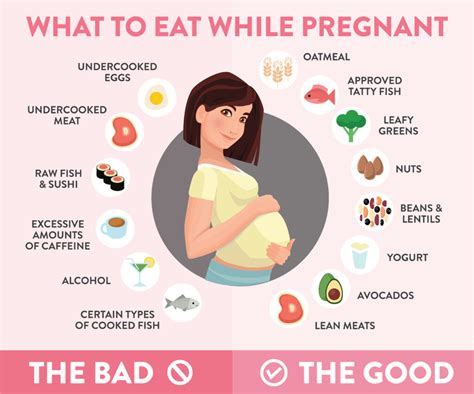Introduction
Eggs are a nutrient-rich food that has been a staple in human diets for centuries. They are a good source of protein, vitamins, and minerals, but they are also high in cholesterol. This has led to some debate about whether or not egg yolks are healthy to eat.

This article will explore the evidence about egg yolks and cholesterol. We will also provide some tips on how to enjoy eggs as part of a healthy diet.
How Much Cholesterol is in an Egg Yolk?
One large egg yolk contains about 186 milligrams (mg) of cholesterol. This is about 62% of the recommended daily intake of cholesterol for adults, which is 300 mg per day.
Is the Cholesterol in Egg Yolks Bad for You?
The answer to this question is not as simple as it seems. There are two types of cholesterol: LDL cholesterol and HDL cholesterol. LDL cholesterol is often referred to as “bad” cholesterol because it can build up in the arteries and increase the risk of heart disease. HDL cholesterol is often referred to as “good” cholesterol because it helps to remove LDL cholesterol from the arteries.
The cholesterol in egg yolks is mostly LDL cholesterol. However, egg yolks also contain nutrients that can help to lower LDL cholesterol levels, such as choline and lecithin. These nutrients help to increase the production of HDL cholesterol, which can help to offset the effects of LDL cholesterol.
Studies on Egg Consumption and Heart Disease
There have been a number of studies that have investigated the relationship between egg consumption and heart disease. Some studies have shown that eating eggs can increase the risk of heart disease, while other studies have shown that eating eggs has no effect on heart disease risk.
One of the most comprehensive studies on egg consumption and heart disease was published in the journal JAMA Internal Medicine in 2019. This study followed over 30,000 adults for an average of 17 years. The study found that people who ate one egg per day had a 12% higher risk of heart disease than people who did not eat eggs. However, the study also found that people who ate two or more eggs per day had no increased risk of heart disease.
Tips for Enjoying Eggs as Part of a Healthy Diet
If you are concerned about the cholesterol content of eggs, there are a few things you can do to reduce your intake.
- Eat eggs in moderation. The American Heart Association recommends that healthy adults limit their egg consumption to one egg per day.
- Choose egg whites over whole eggs. Egg whites contain no cholesterol.
- Cook eggs without added fat. Frying eggs in butter or oil can add extra cholesterol to your meal.
- Pair eggs with healthy foods. Eating eggs with vegetables, fruits, and whole grains can help to offset the effects of the cholesterol in eggs.
New Applications for Egg Yolks
In addition to being a nutritious food, egg yolks also have a number of potential applications in other industries. For example, egg yolks can be used to:
- Make mayonnaise. Mayonnaise is a thick, creamy sauce that is made from egg yolks, oil, and vinegar.
- Make hollandaise sauce. Hollandaise sauce is a rich, buttery sauce that is made from egg yolks, butter, and lemon juice.
- Make ice cream. Ice cream is a frozen dessert that is made from milk, cream, sugar, and flavorings. Egg yolks can be added to ice cream to make it richer and creamier.
Conclusion
Egg yolks are a nutrient-rich food that can be enjoyed as part of a healthy diet. However, it is important to be aware of the cholesterol content of eggs and to eat them in moderation. If you are concerned about the cholesterol content of eggs, you can choose to eat egg whites instead of whole eggs, or you can cook eggs without added fat.
Tables
Table 1: Cholesterol Content of Eggs
| Type of Egg | Cholesterol (mg) |
|---|---|
| Large whole egg | 186 |
| Large egg white | 0 |
| Large egg yolk | 186 |
Table 2: Nutrients in Egg Yolks
| Nutrient | Amount |
|---|---|
| Protein | 6 grams |
| Fat | 5 grams |
| Cholesterol | 186 milligrams |
| Choline | 147 milligrams |
| Lecithin | 120 milligrams |
Table 3: Tips for Enjoying Eggs as Part of a Healthy Diet
| Tip | Description |
|---|---|
| Eat eggs in moderation. | The American Heart Association recommends that healthy adults limit their egg consumption to one egg per day. |
| Choose egg whites over whole eggs. | Egg whites contain no cholesterol. |
| Cook eggs without added fat. | Frying eggs in butter or oil can add extra cholesterol to your meal. |
| Pair eggs with healthy foods. | Eating eggs with vegetables, fruits, and whole grains can help to offset the effects of the cholesterol in eggs. |
Table 4: New Applications for Egg Yolks
| Application | Description |
|---|---|
| Mayonnaise | Mayonnaise is a thick, creamy sauce that is made from egg yolks, oil, and vinegar. |
| Hollandaise sauce | Hollandaise sauce is a rich, buttery sauce that is made from egg yolks, butter, and lemon juice. |
| Ice cream | Ice cream is a frozen dessert that is made from milk, cream, sugar, and flavorings. Egg yolks can be added to ice cream to make it richer and creamier. |















